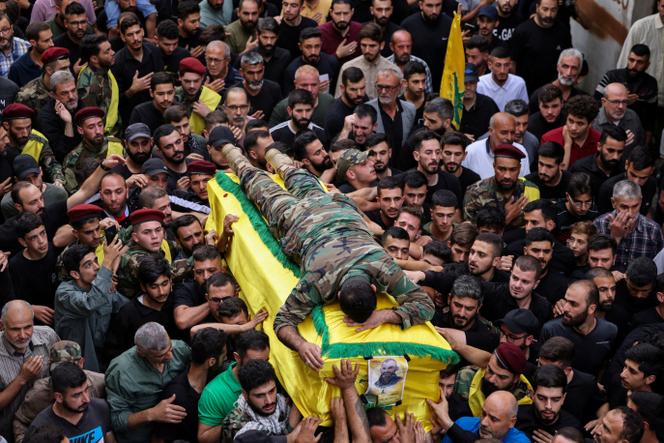


All it took was a fleeting appearance –a 10-second video showing Hezbollah leader Hassan Nasrallah from behind, striding in front of the Shiite movement's yellow-background logo – broadcast on social media on Sunday, October 29, to electrify his supporters and put the whole of Lebanon on high alert. After a number of hours of suspense, the announcement was made: The man in whose hands the fate of Lebanon now rests would make a televised speech at a ceremony in honor of the "martyrs" on November 3, the first since the start of the war between Hamas and Israel on October 7.
Nasrallah's silence until now had fuelled speculation as to whether or not he intended to open a second front against Israel. After his speech on Friday, the Lebanese may not have the answer to their question. But his words are eagerly awaited by Hezbollah supporters, divided between doubt and hope. "Polarized opinions are beginning to take shape in Hezbollah's strongholds, placing the group in a delicate position," observed Nancy Ezzeddine, an expert at the Dutch think-tank Clingendael. "An escalatory decision would push the country into a brutal conflict, but a limited response would jeopardize its rhetoric of resistance, its legitimacy and its ability to mobilize."
The most fervent militants, who hold the Palestinian cause and hostility to Israel close to their hearts, do not understand Hezbollah's hesitation in declaring war on the "Zionist enemy" following the launch of Israel's ground offensive on Gaza. They repeat the slogan "O Nasrallah, strike Tel Aviv" in chorus at demonstrations, funerals and even in songs they compose for their subscribers on social media.
Their impatience echoes the disappointment expressed by Hamas political leaders. "Hezbollah now is working against the occupation. We appreciate this, but we need more in order to stop the aggression on Gaza. We expect more," said Ghazi Hamad, a member of the political bureau, on October 26, in an interview with the Associated Press (AP).
Other Hezbollah supporters, among those living in southern Lebanon, on the front line of the clashes with the Israeli army, question the advisability of a new war at a time when the country is undermined by an economic and political crisis. "The high cost of the Gaza aggression has raised fears. Loyal Hezbollah supporters are even questioning the need to fight on behalf of Palestinians," continued Ezzeddine.
Their doubts have been fuelled by the high number of Hezbollah fighters, nearly 50, who have been killed since the start of the new cycle of tensions that began with the Hamas attack on October 7. Most were mowed down by drone strikes against their artillery positions. Many were in their early 20s, a sign that the militia has yet to deploy its most battle-hardened forces.
You have 45% of this article left to read. The rest is for subscribers only.
